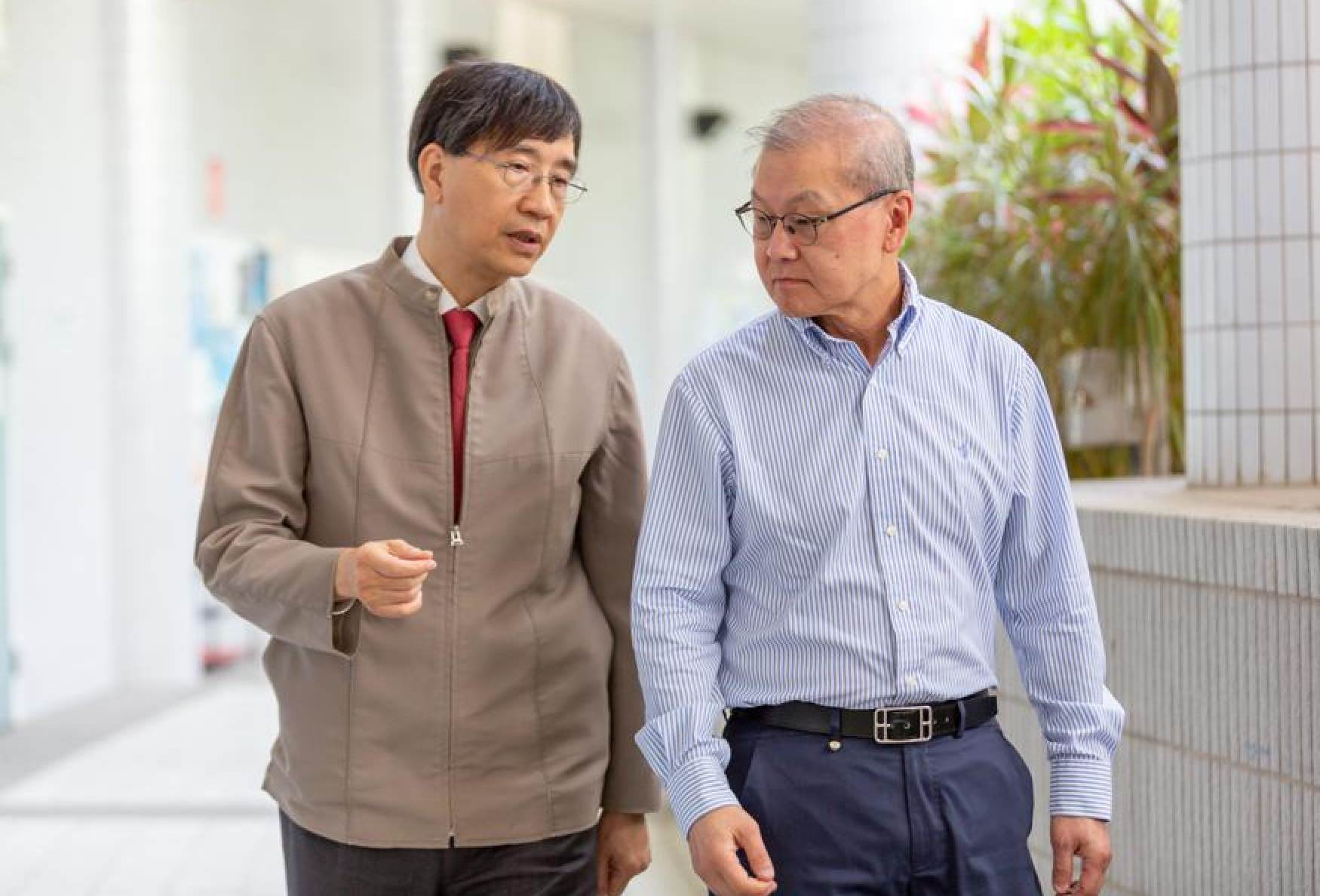
Top scientists from Hong Kong, worldwide to join forces under new alliance backed by Aids-cure pioneer to fight future pandemics
- Renowned virologist Professor David Ho says University of Hong Kong and Beijing’s Tsinghua University have vowed support for team prepping against future pandemics
- ‘We don’t want to go through what we went through over the last 3½ years, so we want to be better prepared,’ he adds
Top scientists from Hong Kong and worldwide are joining forces under a new alliance to tackle the next global pandemic, with a renowned virologist behind the project warning that more viruses might make the jump from animals to humans.
The scholar, who is acclaimed for discovering the efficacy of a cocktail antiretroviral treatment for Aids, on Saturday said he was in talks with the University of Melbourne about joining the alliance.

“Once we define the most important threats, we could start to study them in greater detail to see if we could develop drugs, antibodies and vaccines, and get them ready. Some of them don’t have any of those, and so we could get them ready should one of those emerge as a virus-causing pandemic.”
Ho was one of the first scientists to identify HIV and chart its effects on patients. He was the first doctor to be named Time magazine’s Man of the Year, in 1996, after his work on a treatment for Aids helped to improve survival rates.
Hong Kong leader looks at future of healthcare, medical threats in wake of Covid-19
The idea of forming the alliance was inspired by a conversation among scientists from the four institutes about future threats as the recent pandemic began to wane, he said.
“We don’t want to go through what we went through over the last 3½ years so we want to be better prepared,” he said. “We expect another pandemic and another pandemic, but no expert could tell you when or where or exactly which part.
“With the environmental changes, the dynamics of human interaction with various animal species are changing and cause perhaps more jumping of viruses from animals to humans and some of them will have pandemic potential.”
The Covid-19 pandemic began in 2020 and has resulted in more than 767 million confirmed cases and over 6.95 million deaths around the world.

HKU’s Yuen, who co-founded the alliance, on Monday said that although other scientists were also forming teams, the one under Ho had a unique advantage because it was drawing from experts across the Pacific Ocean.
He explained that data from past global pandemics showed that such events were becoming more frequent and largely originated from regions on the ocean’s rim.
The different specialities offered by each participating institution would also be crucial in preparing for future outbreaks, Yuen added.
“HKU is best at identifying new viruses as we have found more than 80 new ones in humans and animals. Ho’s team specialise in immunology. They have a special understanding of antiviral resistance,” he said. “For Tsinghua University, they did a lot of research and worked on understanding the structure of antibodies. They have also created antibodies for Covid-19 which have been commercialised.
The next pandemic? WHO working on list of pathogens to watch
Yuen added that forming an official alliance would make it easier to share research and described such efforts as “complementary”.
“Our exchange of technology, virus strains and specimens will be much closer,” he said. “We will be able to have a division of labour and develop results much faster. In the past, we would not know what others were doing.”
The world needs China on board to avoid another pandemic disaster
Ho said Hong Kong and the mainland had played a significant role in combating pandemics over the past 20 years and expected that to increase with time.
“Hong Kong faced Sars, then it faced H5N1. I personally witnessed the expansion of expertise here and the greater commitment on the part of scientists and government officials. That improvement is dramatic and admirable,” he said, referring to an outbreak of the bird flu in 1997.

